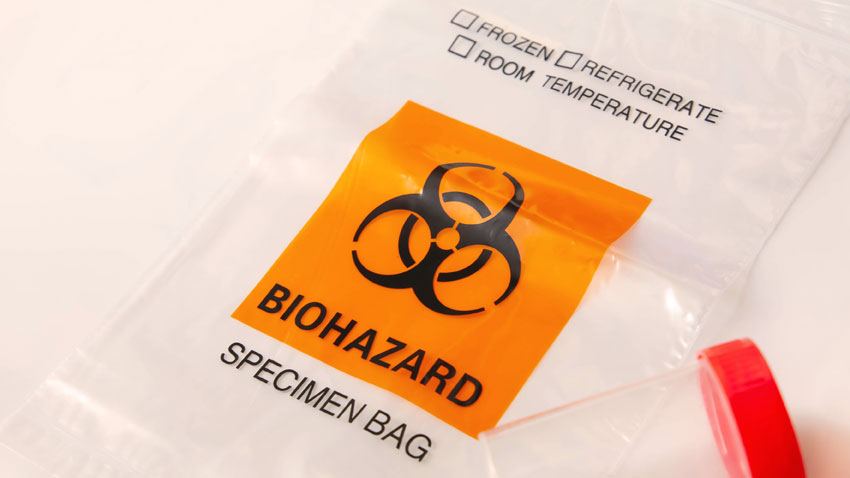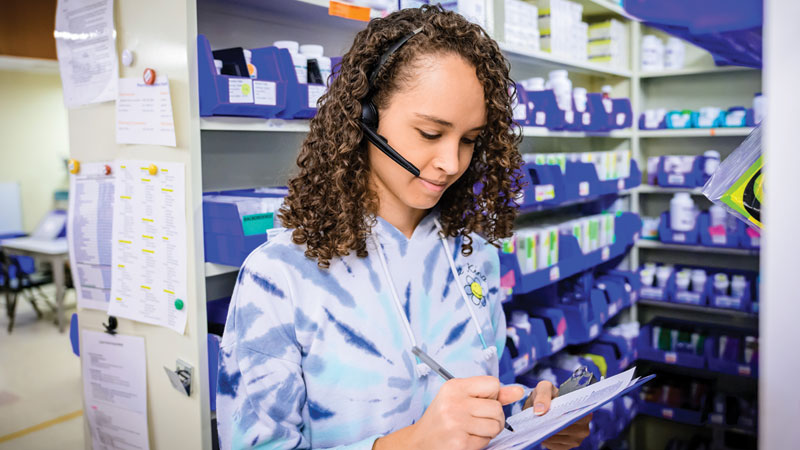Dr. Toborowsky is a clinical assistant professor in the cardiology service.
Tell us about your background.
I grew up in Philadelphia and attended Washington University in St. Louis for my undergraduate degree in East Asian studies. After graduation, I worked as a zookeeper at the St. Louis Zoo for two years and fell in love with primate social systems and behavior.
I completed a graduate degree in ecology, evolution, and systematics at the University of Missouri-St. Louis. While earning a master’s in biological anthropology at the University of Texas at Austin, I lived on and off in Madagascar for six years and completed graduate theses on the behavior, ecology, and olfactory communication of wild lemurs.
I took some time off after graduate school to work as a tour guide and trip leader for an active travel company, leading biking and hiking trips all over the world for four years. After graduating from veterinary school at the University of Pennsylvania, I completed a small animal rotating internship at Friendship Hospital for Animals in Washington, D.C., and a cardiology specialty internship at BluePearl in Southfield, Mich. I did my cardiology residency at the University of Georgia and worked as a staff cardiologist at a large non-profit hospital in New York City before joining the incredible cardiology team at University of Illinois.
What drew you to cardiology?
As soon as I started to learn about the world of cardiology in veterinary school, I knew I had found my passion. I was fortunate enough to have learned from brilliant and charismatic cardiology professors and residents in veterinary school, all of whom helped to hone my learning and help me along the way. I discovered early in veterinary school that the circulatory system is truly a beautiful thing, from the simple form and function of a pump, tank, and series of tubes to the microscopic interactions of ion channels and cell membranes that all work in concert to keep us alive on a millisecond-to-millisecond basis.
The other aspect of this specialty that drew me in was the opportunity to treat a wide variety of diseases, ranging from congenital cardiac disease in puppies and kittens to acquired heart disease in adult patients and finally heart failure toward the end of life. While some of the congenital diseases we manage are essentially curative with the development of non-invasive interventional procedures, much of the heart disease we see on a day-to-day basis is merely manageable. However, as time goes by and newer medications and procedures become available to our patients, we can provide increasingly better care and extend the lifespan of our patients without sacrificing the quality of their life.
Tell us about a favorite case of yours.
Really any patient with heart disease where we have an opportunity to intervene with a life-altering procedure is my favorite type of case. The cases that stand out for me would be those young patients with severe congenital cardiac disease, whose owners tell us that their pet is a completely new dog or cat after an interventional procedure in our cath lab (catheterization laboratory).
The most common congenital cases we treat would be dogs with patent ductus arteriosus or dogs with pulmonary valve stenosis, and I love being able to do those procedures and give our patients a chance at a normal life.
The other cases that really stand out for me would be those that involve precise planning and close collaboration with our surgery and anesthesia teams, particularly for addressing rare cardiac diseases or performing procedures that we do not get to perform often. I have been fortunate enough to be part of interventional teams that have successfully intervened on patients with tetralogy of Fallot, double chamber right ventricle, and a very lucky dog with severe end-stage subaortic stenosis with life-limiting mitral valve dysplasia, who lived almost three years after her first episode of heart failure.
What are your special interests inside the clinic?
I’m happiest when I have a dry erase marker in my hand and there is a whiteboard close by, since I love to teach. My interests while on the clinic floor involve getting students interested in all things cardiology, whether that be discussing how cardiac medications work, cardiorenal physiology, how to look at chest x-rays, or just how to talk to a client about heart disease.
I also love to challenge my residents and interns with quizzes and advanced topics rounds as part of their cardiology training. The goal is to make learning fun, not scary or intimidating.
In addition to medical education, I am also very interested in advances in medical management of congestive heart failure with SGLT2 inhibitors, management and diagnosis of pulmonary hypertension, innovative interventional procedures for heart disease, right heart function and failure, and overcoming diuretic resistance in heart failure patients.




